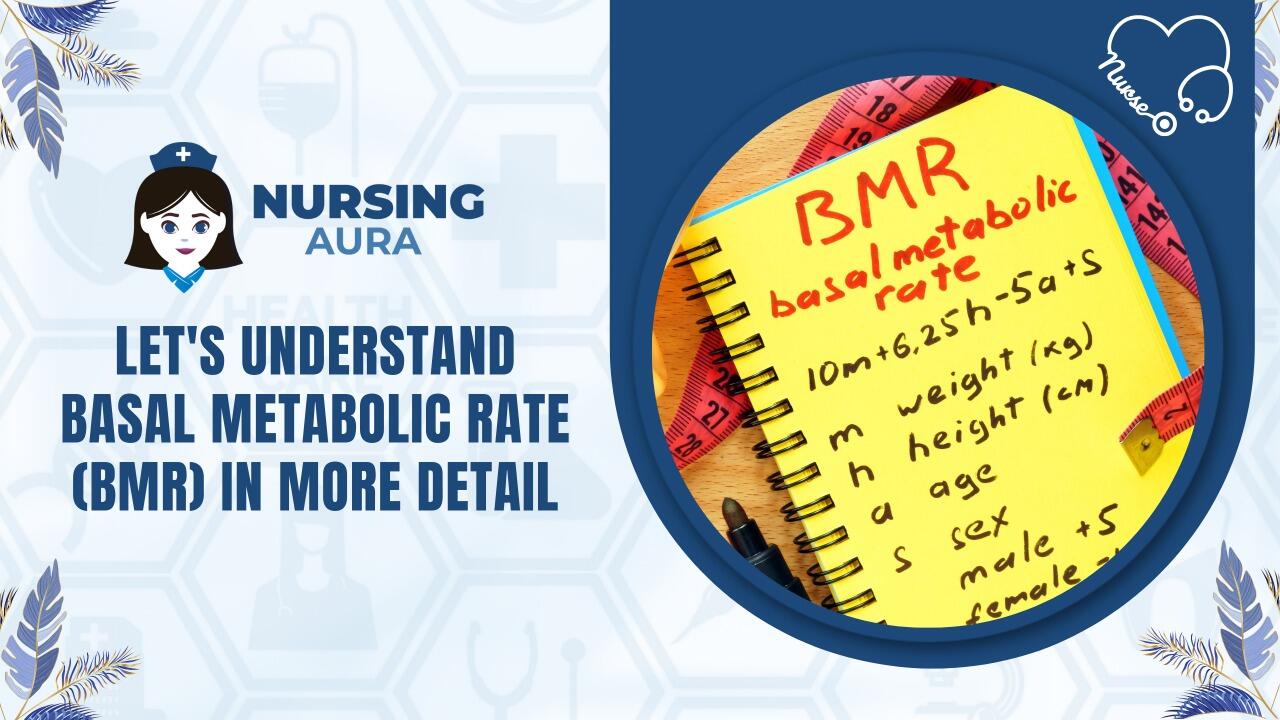Basal metabolic rate is the quantity of calories necessary for the body to accomplish the most fundamental life-sustaining tasks, such as breathing and keeping the heart beating. Important physiologic conditions include respiration, cardiovascular constriction, conduction of nerve impulses, and metabolic activities such as synthesis of macromolecules under standard settings, reabsorption of kidney, and iron transport across nerve impulses. This capacity occurs continuously with one’s own awareness or consciousness. Shockingly, the basal metabolic requirements of 33 individuals with a total daily energy expenditure of 2,000 calories are surprisingly high, with 1,200–1,400 calories expended to maintain regular digestion.
Basal digestion is the minimum amount of energy required by the body to sustain life while a person is in a post-absorptive state and at physical and mental rest.
The smallest quantity of calories required by the body to perform life activities is the basal metabolic rate. It can be calculated either directly from the heat produced using a breath calorimeter and metabolic chamber, or indirectly from O2 intake and CO2 consumption in a very motionless person.
Normal values
The values of the basal metabolic rate are expressed in kcal or kJ per square metre of body surface per hour.
Male adult BMR is 40 kcal/h (168 kJ) while female adult BMR is 37 kcal/h (148 kJ) (155 kJ).
How to calculate your Basal Metabolic Rate (BMR)?
Basal Metabolic Rate (BMR) is estimated using the Harris-Benedict formula, which takes into account a person’s weight, height, age, and gender.
BMR = 655 + (9.6 weight in kilogrammes) + (1.8 height in centimetres) – (4.7 age in years) for women.
BMR = 66 + (13.7 weight in kilogrammes) + (5 height in centimetres) – (6.8 age in years) for men.
Aspects influencing BMR
There are numerous variables that affect the BMR, with the most well-known being:
Energy
Energy is defined as the capacity to perform work. It is the heat created by the body, which is used for performing required and voluntary actions, maintaining body temperature, and combining new body components.
Basal metabolic rate
In any case, when the body is at rest and no actual work is performed, various processes occur without conscious effort. These include significant processes such as the pumping of the heart, blood flow, etc.
Influencing factors of basal metabolic rate (BMR)
- Surface area of body
The greater the body’s surface area in relation to its mass, the greater the heat lost by radiation.
- Sex
Men have a higher basal metabolic rate per square metre of body surface area than women. The prerequisites according to Western standards are:
-
- 40 calories per square metre per hour for guys
- 37 cal/m2/hour for women
- Age
According to their weight, developing children and adolescents have BMRs that are higher than those of adults.
- Infections or diseases
A few disorders, particularly those affecting the thyroid glands, can increase or decrease BMRs. A 1°F increase in core body temperature is associated with a 7% increase in basal metabolic rates.
- Health status
In states of hunger, starvation, fasting, and malnutrition, the basal metabolic rate (BMR) is lower than in healthy states. In cases of prolonged or chronic malnutrition, the BMR decreases.
- Stress
Mental strain and pressure brought on by stress or stress will increase the BMR.
- Hormonal Alterations
Changes in hormones can impact how quickly or slowly the body burns calories.
- Environment
Climate also varies in affecting BMR. In the winter, the BMR increases, whereas in the summer it is quite low.
- Drugs
Smoking (nicotine) and coffee (caffeine) increase BMR, whereas beta-blockers reduce energy expenditure.
Nutritional Deficiency
BMR can also be altered by dietary deficits. A diet lacking in iodine, for instance, will decrease thyroid function and metabolism.
These are known as fundamental metabolic processes. The amount of energy expended for these activities is known as the BMR. The majority of an individual’s total energy requirements are determined by his or her basal energy requirements.
BMR is essential for individuals attempting to control their weight. It can assist him in reducing the number of calories he consumes daily. Similarly, if a person is attempting to gain weight, BMR can be used to calculate the number of extra calories that must be added to his or her diet.
Increasing caloric intake through physical activity is the most rational method for boosting metabolism. BMR decreases in response to a person’s diet to conserve energy and maintain essential organs. A regimen of proper nutrition and increased physical activity maintains or increases BMR and promotes weight loss and maintenance. Everything depends on calories and caloric equilibrium.

